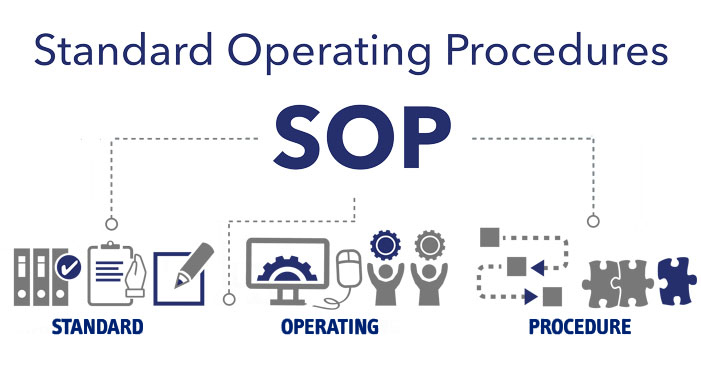Standard Operating Procedures (SOP) are a set of step-by-step instructions compiled by an organization to help workers carry out complex routine operations. SOPs aim to achieve efficiency, quality output, and uniformity of performance, while reducing miscommunication and failure to comply with specific instructions.
SOPs and checklists are essential to the successful operation of our sites. They consist of clearly documented, step-by-step procedures and checklists that are easy for officers to follow and greatly reduce the chances of mistakes.
Well written SOPs clearly communicate responsibilities to officers. They don’t have to rely on their memories, or all the things they learned in their training when first hired.
They provide consistency and quality control. SOPs ensure that no matter what day it is or who is working, the tasks that keep the site running effectively will be done the way our clients what them done. Each officer knows what’s expected of him or her, rather than guessing what needs to be done.
Officers who have clear communication about what’s expected of them are more productive and more likely to achieve peak performance. SOPs also increase productivity for managers by saving them time conducting refresher training or reminding employees of what needs to be done daily.
Without SOPs, job performance often becomes a matter of opinion. With SOPs, managers can clearly identify employee successes and communicate deficiencies when meeting with our clients.
Clearly written SOPs, along with proper training, reduce the odds of accidents or injury because tasks are written. They may also reduce legal liability should an incident occur.
Well written SOPs not only clearly outline the how of procedures, but also the why. When you communicate sound reasons why officers should perform tasks in a certain way, they’re more likely to do so.
Like everything in life, “proper preparation prevents poor performance.” When assuming a security post make sure to review the post orders daily, as they change frequently.
Would you fly on a plane knowing that the maintenance crew and pilots were “sort of” trained and didn’t refer to their respective Standard Operating Procedures or checklists?

